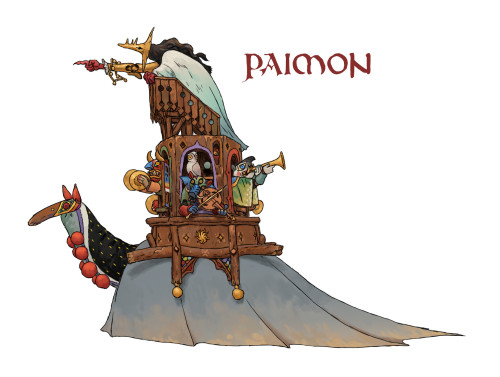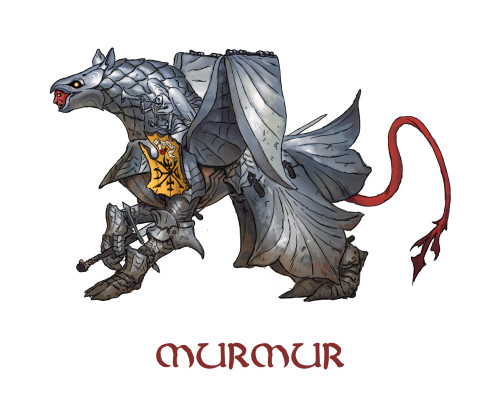Thejunkdrawers - I Might Need It Later...

More Posts from Thejunkdrawers and Others
Concept: a JRPG-inspired setting where instead of star signs or tarot arcana or whatnot, bullshit personality typing is based on what elemental attacks you’re weak and/or resistant to.
(”She’s resistant to fire and weak to lightning? Ouch - you know that means major commitment issues.”)
I love that RPG race trail rations post, and it got me thinking about non-Eurocentric fantasy trail rations. I focused on Central and South Asian cuisines (as I also needed the information for a project I’m working on). I looked for foods that were easy to carry (dry or dehydrated), easily obtainable in markets/easily foraged, easy to cook/not needing cooking at all, and high in protein/generally filling. Many foods had language-specific names and some overlapped into different regions, so I bare-bones’d the names. This is what I came up with:

Dried curd comes in many forms – kashk, aaruul, quroot, etc. – and was of particular interest to me, since I learned it was used since (and before) medieval times as a trail ration for soldiers and travelers because it is lightweight and high in protein. The more you know. 🌈
Tempeh is one of my favorite food options, but I should note that it originates from Southeastern Asia, Indonesia in particular.
Bamboo is extremely handy for use as both a carrying and cooking vessel, and would save a character the hassle of bringing a skillet with them (provided the character is in an area with large bamboo and a water source). It’s a method still used today because it’s extremely efficient. Storing eggs in rice is a good way to travel with them and keep them from cracking for a short time.
These are just some basics and I’m only scratching the surface, so if anyone has foods to add from these regions (East and Southeast Asia, too!), or any non-European region honestly, don’t hesitate to add them!

BOOK OF KELLS BOOK OF KELLS BOOK OF KELLS BOOK OF KELLS
Explaining acá and ahí would be a lot easier if English still used “hither” and “thither”.
Like aquí is “here”, and acá is “hither”. Where “hither” means “over here” or “closer”; different from “here” which is an actual place, while “hither” is a direction.
And allí is “there” but ahí can be “thither” which is “towards that place” or “over there” like you’re pointing.
And allá is “all the way over there” or “yon(d)” or “yonder”.
If you study Spanish long enough you’ll understand “Olde” English a whole lot more because they weren’t as different once upon a time.
Writing Specific Characters - Advice
*updated 28.03.13 - 29.05.13
a young character
a character who lost someone important
a flirtatious character
a villain (2) (3) (4)
a character based on yourself
a hit man or mercenary
an indifferent character
a bitchy character
a gay character
a dancer / ballerina
a vampire
a werewolf
a pansexual character
a character on the police force
a drunk character (2)
a manipulative character
a friends with benefits relationship
a natural born leader (2)
a nice character
a british character
a character with a baby
an assassin
a character with night terrors
a rich character
a witty character
a sociopath
an actor
a nerd
an eccentric intelectual character
a character under the influence of marijuana
A random assortment of archaic/disused English words that should still be used:
brust (bristled or bristly)
coolth (coolness. We still have 'warmth' so why did this one disappear????)
ambiloquent (using ambiguous language)
downsteepy (steeply descending)
mazeful (confusing)
evulgate (to send out among the people, to publish or distribute)
toploftical (haughty)
hazardry (risk-taking)
dizzard (a fool, jester, or stupid person)
againster (someone who is habitually opposed to things or 'against' things)
loselry (behavior characteristic of a losel, which is similar to a 'loser,' except the connotation encompasses "profligate" or "scoundrel")
plaguey
malengine (evil intent, fraud, deceit)
beasten (of or pertaining to beasts)
wranglesome (contentious and prone to quarreling)
dwine (to waste away)
-
 thejunkdrawers reblogged this · 2 months ago
thejunkdrawers reblogged this · 2 months ago -
 bloghyperfixes liked this · 10 months ago
bloghyperfixes liked this · 10 months ago -
 gomodernart liked this · 2 years ago
gomodernart liked this · 2 years ago -
 cyber42winter liked this · 3 years ago
cyber42winter liked this · 3 years ago -
 darknessiscool47 reblogged this · 3 years ago
darknessiscool47 reblogged this · 3 years ago -
 darknessiscool47 liked this · 3 years ago
darknessiscool47 liked this · 3 years ago -
 lennis liked this · 3 years ago
lennis liked this · 3 years ago -
 lennis reblogged this · 3 years ago
lennis reblogged this · 3 years ago -
 anames liked this · 3 years ago
anames liked this · 3 years ago -
 puraimagenshingona reblogged this · 4 years ago
puraimagenshingona reblogged this · 4 years ago -
 castlediimon reblogged this · 4 years ago
castlediimon reblogged this · 4 years ago -
 sadsouvenaunce liked this · 4 years ago
sadsouvenaunce liked this · 4 years ago -
 xbluuetardisx liked this · 4 years ago
xbluuetardisx liked this · 4 years ago -
 d4rkz3r0w0lfy liked this · 4 years ago
d4rkz3r0w0lfy liked this · 4 years ago -
 ammon-rah liked this · 5 years ago
ammon-rah liked this · 5 years ago -
 mysticnightstarlight liked this · 5 years ago
mysticnightstarlight liked this · 5 years ago -
 andrewblb liked this · 5 years ago
andrewblb liked this · 5 years ago -
 sparkmender liked this · 5 years ago
sparkmender liked this · 5 years ago -
 renikara liked this · 5 years ago
renikara liked this · 5 years ago -
 tfp-optimusprime reblogged this · 5 years ago
tfp-optimusprime reblogged this · 5 years ago -
 tfp-optimusprime liked this · 5 years ago
tfp-optimusprime liked this · 5 years ago -
 fzevin liked this · 6 years ago
fzevin liked this · 6 years ago -
 tiredmon0n reblogged this · 6 years ago
tiredmon0n reblogged this · 6 years ago -
 tiredmon0n liked this · 6 years ago
tiredmon0n liked this · 6 years ago -
 mckrypt liked this · 6 years ago
mckrypt liked this · 6 years ago -
 whitewolfoakleaf liked this · 6 years ago
whitewolfoakleaf liked this · 6 years ago -
 afriendlyirin liked this · 6 years ago
afriendlyirin liked this · 6 years ago -
 worsethanmanyfairies reblogged this · 6 years ago
worsethanmanyfairies reblogged this · 6 years ago -
 worsethanmanyfairies liked this · 6 years ago
worsethanmanyfairies liked this · 6 years ago -
 palepandacreation reblogged this · 6 years ago
palepandacreation reblogged this · 6 years ago -
 palepandacreation liked this · 6 years ago
palepandacreation liked this · 6 years ago -
 xxxdragonfucker69xxx liked this · 6 years ago
xxxdragonfucker69xxx liked this · 6 years ago -
 dilact liked this · 6 years ago
dilact liked this · 6 years ago -
 trappedinavelociraptor reblogged this · 6 years ago
trappedinavelociraptor reblogged this · 6 years ago -
 isidoriel reblogged this · 6 years ago
isidoriel reblogged this · 6 years ago -
 nenavistblyat liked this · 6 years ago
nenavistblyat liked this · 6 years ago -
 jesse-9ooo liked this · 6 years ago
jesse-9ooo liked this · 6 years ago -
 shifter55 liked this · 6 years ago
shifter55 liked this · 6 years ago -
 blaze-kitty liked this · 6 years ago
blaze-kitty liked this · 6 years ago -
 thatgayguyyouknow liked this · 6 years ago
thatgayguyyouknow liked this · 6 years ago -
 jadeejtk reblogged this · 6 years ago
jadeejtk reblogged this · 6 years ago -
 fruitviibes liked this · 6 years ago
fruitviibes liked this · 6 years ago -
 nossidami liked this · 6 years ago
nossidami liked this · 6 years ago -
 zip-toonz liked this · 6 years ago
zip-toonz liked this · 6 years ago

A side blog where I'll *try* to keep things organised.yeahthatsnotgoingtolastlong
241 posts










